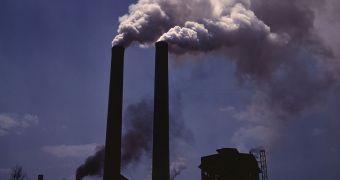Rich nations all across the globe are saying that potential measures provided by a global treaty on climate change could become effective in 2020, eight years later than they should. Such a forecast implies various negative effects on the environment.
We will witness an acceleration of global warming during each year that passes without highlighting improvements in fighting this phenomenon, according to Business Green.
Most developed countries openly admit that a global treaty might become reality within four years, but even if the process of negotiations goes along smoothly, its regulations will be implemented eight years from now.
Scientists warn that global gas emissions have reached a record rate, and continue to grow. On the other side, governments say that the estimated delay can't be avoided at this point in time.
As the current, vaguely efficient framework provided by the Kyoto Protocol will expire next year, authorities are compelled to come up with a new set of regulations aiming to keep the harmful emissions under stricter control.
EU members, Japan and the US are on the list of nations concerned about the environment willing to support an international agreement “as soon as possible.”
At the same time, the most vulnerable areas, known as “The Alliance of Small Island States,” affirm the anticipated deadline provides an alarming postponement for a treaty that has the power to overcome the catastrophic consequences of global warming.
Scientists and environmental groups are manifesting their concern, since they believe a global agreement set for 2020 is too distant a timeline, virtually making it impossible to maintain temperature growth below 2 degrees Celsius (35.6° Fahrenheit).
According to experts, maintaining the current level of 2 degrees above the values recorded throughout the pre-industrial era represents the only effective solution meant to monitor global warming.
At this point in time, the situation is grave: the International Energy Agency (IEA) experts are talking about a rising level of CO2 emissions, the result of increased fossil fuel burning processes. In 2010, it became clear the growth was of up to 5%.
Most environmental scientists have put all their hopes in a global agreement reached during the Durban summit, but if this project fails in providing an appropriate framework and the anticipated delay is preserved, climate change could turn into “climate catastrophe” in no time, according to Ruth Davis from Greenpeace.

 14 DAY TRIAL //
14 DAY TRIAL //